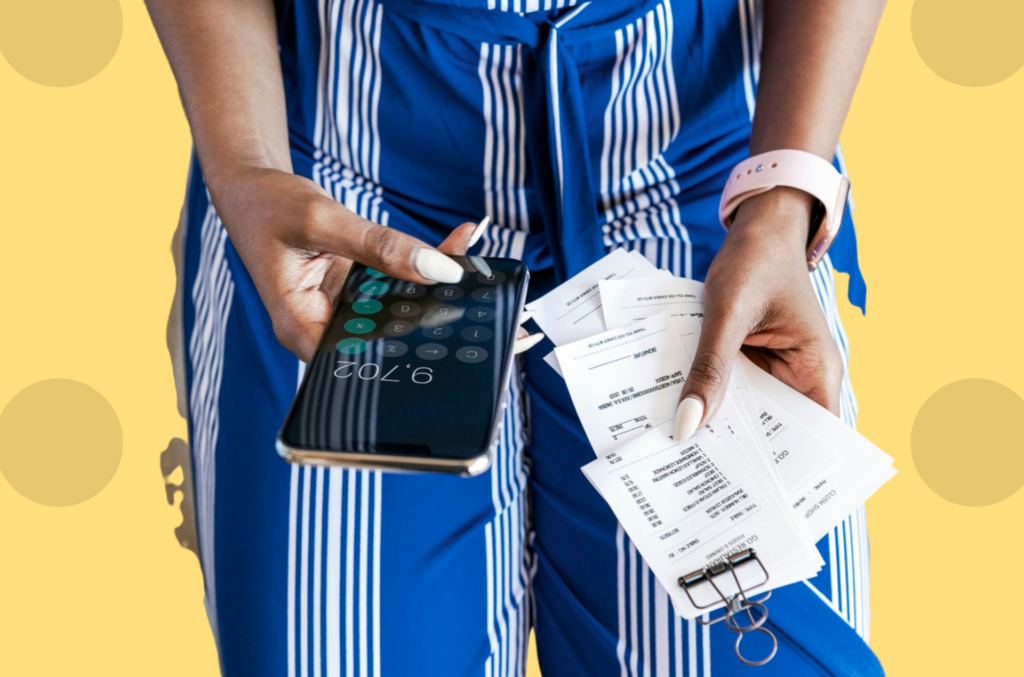We’re sure we don’t have to tell you twice that 2023 was a turbulent year financially. With warnings already arriving this year about further energy price rises, and the cost of filling up your car and trolley seemingly going up each and every day, it’s understandable that many Brits are looking to tighten their belts.
But just how do you go about making sensible, sustainable cut backs on your daily, weekly and monthly outgoings?
Budgeting, investing in stocks, balancing the books and staying alert to the threats of fraud; oh, how we wish these things had been taught in school. Because as it stands, it feels like we’re spat out into the big wide world with a rudimentary knowledge of finance. And sometimes, we can do lasting damage to our finances in the first few years of independence with some truly naive money moves.
Indeed, if the whole point of school is to prepare students for ‘real life’, then education falls woefully short when it comes to managing our finances. As a result, many people reach adulthood without really understanding the importance of financial health.
We’ll start here; our 7 steps to becoming more financially literate in 2024.
Give Your Accounts An Audit Often
How many of us, even in a relatively comfortable stage of adulthood, dread each and every occasion where we have to check our bank balance, the words ‘insufficient funds’ forever seared into our soul?
The clue here isn’t so much in the universal acknowledgement of that feeling. Nope, we think it’s more telling that we ‘have to’ check our balance, at all. Instead, it should be part of your routine, to do so regularly and scrupulously. This is the first step to better financial literacy and a more implicit understanding of the ebb and flow of your incomings and outgoings.
As a rule, this should include your bank account balance, credit card balance, and available funds. Because knowledge is power, after all…

Create A Monthly Budget & Stick To It
Simply checking your bank balance then cracking on regardless of its health simply isn’t a smart way of doing things. To get a tighter grip of your finances, set monthly budgets, which not only help you stay within your means, but also remind you of recurring charges, such as streaming services, erroneous or out of date direct debits, memberships you no longer use, and more.
This has never been more pertinent, with energy bills in particular changing seemingly every week. Accordingly, you should adapt your budgets to suit these shifting conditions with the same regularity.
If you aren’t already in the habit of carefully constructing a monthly budget and doing a regular audit of your finances, now is a good time to get back to basics and make one. This starts with a calculation of your incomings and outgoings and then looking for areas where you can cut out any non-essential expenses.
For example, with gyms closed, there’s no reason to keep paying your gym membership. Most gyms these days offer free anytime cancellation or will freeze your membership. Similarly with sports fixtures being postponed (yep, we know they’re starting again shortly – but is there much value in games with no fans?) if you have a sports package such as BT Sport, or Sky Sports you could freeze the sports package until things get back to normal.
Give all of your subscriptions an audit and identify what might be necessary during this time.
Living Within Your Means Means Living Within Your Means
Credit card debt can creep up on you, even at the best of times. It can be increasingly stressful if you’re facing a drop in income or the loss of your job due to the current global crisis. If you can’t pay off your credit card balance this month, then it’s likely you won’t be able to pay it next month either, so do endeavour to stop adding more debt wherever you can.
That said, there is help at hand should you need it. According to the Financial Conduct Authority’s (FCA) rules, lenders and debt collectors should treat people who are struggling to make payments “with forbearance and due consideration’’. This means that if you can’t make a payment this month because your income has fallen, then they should work to help you.
Several banks and credit card providers have instituted measures such as payment holidays to help you through this period. Some providers are increasing credit limits on credit cards and overdrafts if you depend on them for everyday expenses.
This is a blessing, of course, but it could end up being a curse; don’t get lulled into a false sense of security because of this and get into a habit of overspending. Better still, in the name of financial literacy, to live within your means and manage your money mindfully.

Track Your Credit Score Diligently
Many credit card companies offer free annual credit reports or they notify you of significant changes to your credit score, which is useful in recognising where and when you’re overspending, helping you get an overall picture of your financial health.
The UK’s three main CRAs – Equifax, Experian and Callcredit – use scoring scales that range from 0 to 1,000. You’ll only get a score of 0 if you’ve never had credit before as, quite simply, the agencies have no information on you.
There are actually two types of credit score. Namely, generic scores and customised scores. Lenders and businesses use generic scores to assess how much of a risk it is to lend money to you. The three big CRAs can send you your generic score if you ask, but an individual credit card company, and sometimes even your high street bank, offer credit report tracking. Should yours, do take them up on the offer. Knowledge is power and all that.
If You’re In Debt
Finding yourself in debt can be overwhelming, but it’s important to know that there are strategies and resources available to help you regain control of your finances. The key is to act swiftly and thoughtfully to prevent the situation from escalating.
- Assess Your Debt: Start by making a comprehensive list of all your debts, including the creditor, total amount of the debt, monthly payment, and interest rate. This will give you a clear picture of what you’re facing.
- Prioritize Your Debts: Look at the interest rates and prioritize paying off the debts with the highest rates first. This is often referred to as the ‘avalanche method’ and can save you money on interest over time.
- Contact Your Creditors: Reach out to your creditors to discuss your situation. Many are willing to work with you to adjust your payment plan if they understand you’re committed to paying off your debt.
- Consider a Debt Management Plan: A debt management plan (DMP) can help you consolidate your debts into one manageable monthly payment. This plan is often administered by a credit counseling agency.
- Seek Professional Advice: If you’re unsure about the best course of action, consider seeking advice from a financial advisor or a solicitor. If you cannot afford a solicitor, you may be eligible for legal aid. Legal aid can help cover the costs of legal advice, family mediation, and representation in court. Legal aid solicitors can provide guidance on your rights and options, particularly if you’re facing legal action from creditors. They can also help you understand the implications of different debt relief options, such as bankruptcy or debt settlement.
- Create a Budget: A budget is essential for managing your debt. Allocate enough money to cover your basic needs, then prioritize debt payments. Be realistic about what you can pay and when.
- Avoid Accumulating More Debt: While you’re working to pay off existing debt, it’s crucial to avoid taking on new debt. Cut out non-essential expenses and try to build a small emergency fund to cover unexpected costs without resorting to credit.
- Stay Informed and Patient: Debt repayment is a process that can take time. Stay informed about your rights and options, and be patient with yourself as you work towards becoming debt-free.
Remember, dealing with debt is as much about strategy as it is about persistence. By taking informed steps and seeking the right kind of help, you can navigate your way out of debt and towards a more stable financial future.

Recognise & Cherish The Benefits Of Being Fiscally Responsible
Turning a blind eye to your finances will only lead to bigger problems. On the flipside, keeping educated about your money can lead to a number of benefits:
- Track your spending habits. You may be surprised by how much you’re spending, and be shocked into enacting positive change.
- Check your gains and losses. Checking your investments routinely can help you adjust to the market shifting up and down instead of panicking on the downswing.
- Catch any fraudulent activity. You’re likely to catch credit fraud before the bank or the credit card company does, which is sometimes too late.
- Helps you stay within budget. Knowing how much money you have on hand will prevent you from overspending.
- Reduces money stress, especially if there’s an emergency. Studies show that only a quarter of British adults have an emergency fund, which can only lead to even greater problems later down the line.

Embrace Continuous Financial Education
The world of finance is ever-evolving, with new products, services, and regulations emerging all the time. To stay financially literate, you must commit to lifelong learning. This doesn’t just mean keeping up with the latest financial news and trends; it involves actively seeking out educational resources to enhance your understanding of financial concepts and strategies.
- Subscribe to Financial Newsletters: Sign up for newsletters from reputable financial news sources to get regular updates on the economy, stock market trends, and personal finance tips.
- Read Books and Articles: Allocate time each week to read books, articles, and research papers that delve into various aspects of finance, from basic budgeting to complex investment strategies.
- Take Online Courses: There are numerous free and paid online courses available that can help you expand your financial knowledge, whether you’re a beginner or looking to specialize in a certain area.
- Join Financial Forums and Groups: Engage with communities on platforms like Reddit, Facebook, or LinkedIn where you can discuss financial topics, ask questions, and learn from others’ experiences.
- Consult with Financial Advisors: If possible, schedule regular check-ins with a financial advisor who can provide personalised advice and help you navigate complex financial decisions.
- Review and Reflect: Set aside time to review your financial decisions and reflect on their outcomes. This practice can help you learn from your successes and mistakes, ensuring continuous improvement in your financial literacy.
By making financial education an ongoing part of your life, you’ll be better equipped to make informed decisions, adapt to changes, and achieve your financial goals. Remember, financial literacy isn’t a destination; it’s a journey that requires dedication and curiosity. Keep learning, and you’ll keep growing.
The Bottom Line
So, there you have it. Even by sticking with this article to the end, you’ve become a more financially literate person. Continue this rich run of form and slowly but surely, you’ll notice improvements in the health of your bank balance. Don’t spend it all at once!





